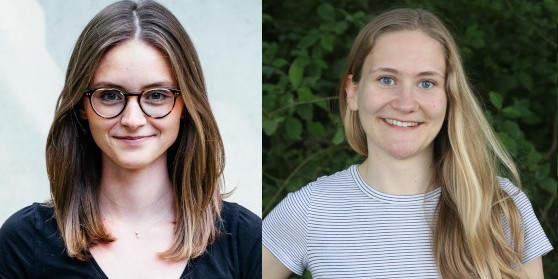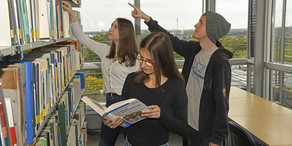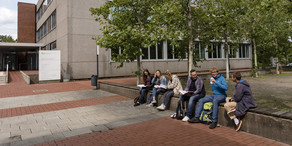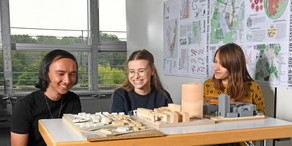Two KoMet Young Researcher's Awards are awarded to graduates of our department
- News

The prizes will be awarded in December on the occasion of the KoMet Day 2023 in Essen.
Dr Hellwig's dissertation entitled "Transformation, digitisation and the geography of knowledge" was supervised by the departments of Urban Development (Prof. Dr Stefan Siedentop) and Urban, Regional and International Economics (Prof. Dr Christiane Hellmanzik). The thesis examines young digitalisation-focused enterprises in Germany between 2007 and 2017 and their locational decisions at the time of founding as well as the influencing push and pull factors for corporate mobility. To this end, Dr Helllwig combines temporal and economic aspects in her work using various panel econometric methods. Dr Hellwig does this in particular against the background of macroeconomic development, shifting technologies, and spatial transformation processes. One of the chapters analyses, for example, which sectors in the digital industry are particularly strong in terms of start-ups and what the mobility patterns in the industry look like. Furthermore, Dr Hellwig examines LAU regions and focuses on the spatial aspects, especially of the local labour market in polycentric relative to monocentric regions. Finally, the thesis deepens the analysis by taking a granular look at the cities of Berlin, Munich, and Hamburg and comes to the conclusion that digital economy clusters tend to be located within only a few square kilometres and tend to cluster around knowledge institutions.
The Master's thesis entitled "Constructing an index to assess small-scale potential for physical activity of urban environments" was supervised by the Spatial Modelling Lab (Jun.-Prof. Dr René Westerholt) and the Urban and Regional Planning research group (Prof. Dr Frank Othengrafen). The thesis deals with the evaluation of small-scale potentials for physical activity in the urban environment. For this purpose, an index is implemented at the level of residential areas, which comprises four dimensions that influence different forms of physical activity: the transport network, patterns of land use, access to green and blue infrastructures, and sports and play opportunities. The four dimensions are measured in 22 variables and transformed into a weighted composite index. The latter was tested in three inner-city districts of Dortmund, with the greatest potential for physical activity being found for settlement areas in the Klinikviertel and Kreuzviertel, whereas areas in Tremonia, Borsigplatz, Körne, and the northern Gartenstadt show greater impediments to physical activity. In addition to the index's ability to identify small-scale potentials for movement and to understand the underlying urban factors, the Master's thesis raises the question of whether small-scale indices can be used in planning to evaluate different planning scenarios. In this sense, the modelling and comparison of health impacts of different planning scenarios can lead to decisions being made in favour of health-promoting urban structures and to health promotion issues receiving more attention in spatial planning.












